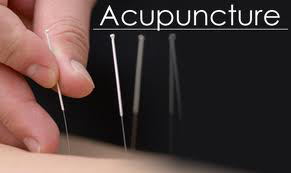



My story
I have been in practice as a homeopathic doctor in Essex for 30 years. I first encountered homeopathy when I was a medical student at Glasgow University in the 1970s. I didn’t know I was going to practise alternative medicine but I was lucky enough to find homeopathy before I’d acquired any medical prejudices. When I saw homeopathy working well in hospital patients and in outpatient clinics I did not disbelieve the evidence of my eyes and ears. What I saw was doctors who really listened to their patients. Of course conventional doctors listen but mainly to extract certain details in order to make a diagnosis. Homeopathic doctors are also interested in their patients’ experience of their ailment. This is useful in choosing the homeopathic remedy. So homeopathy can truly be called a medicine of the ‘whole person’. After qualifying in medicine I spent a few years in mainstream medicine but homeopathy kept ‘calling to me’ so in 1981 I opted for full time homeopathic practice, partly in private practice and partly at the Royal London Homeopathic Hospital where I had been part of the medical staff. Prior to that I learned from whoever would teach me and have gone on seeking knowledge since. This has led me to Chinese Medicine. I had already learned some basic acupuncture at the Royal London Homeopathic Hospital and found it useful, but to deepen my knowledge and gain a recognised qualification I took the Diploma course in Chinese Medicine at Acumedic Foundation, London. What I have found is that Chinese Medicine is a very good basis for using homeopathy, a more suitable base than Western medicine and pathology, as Chinese Medicine is a holistic system. It is difficult now to imagine practising any form of medicine without a holistic view of the human being. Intervention in any part of a person’s life or health affects the other parts. This idea is not part of conventional medicine as usually practised.
Chinese Medicine
Chinese Medicine is incredibly useful for understanding what is going wrong with a person’s health. What can seem to a Western Medical viewpoint merely a collection of unrelated complaints can often by understood clearly when viewed through the lens of Chinese Medicine. For example, suppose a person of middle age complains of dry sore eyes, being irritable, increasing blood pressure, feeling hot at night and sleepless towards morning. These symptoms taken together would suggest a Liver problem [probably Liver Yin Deficiency]. To confirm this suspicion one examines the tongue and pulse, nails, facial colour, etc.. This allows not only correct acupuncture or herbal treatment but the right advice as to diet, lifestyle, and the likely problems that may occur with any conventional drugs being taken. People read all sorts of things about health and diet. For example, a person who is told by a friend how much a raw food diet has been helpful may want to try this. But if she has a weak Spleen this diet will probably be harmful. The Chinese Medical concept of the Spleen, Liver, etc, is not quite the same as the Western one, by the way. For example the Spleen involves the power of the digestive function as well as being concerned with the blood as in Western medicine. In our first example of the patient with high blood pressure a Western-trained doctor would not consider the Liver to be at fault and most likely liver blood tests would be normal. In Chinese medicine the term Liver has a wider meaning and is often the main organ affected by stress.